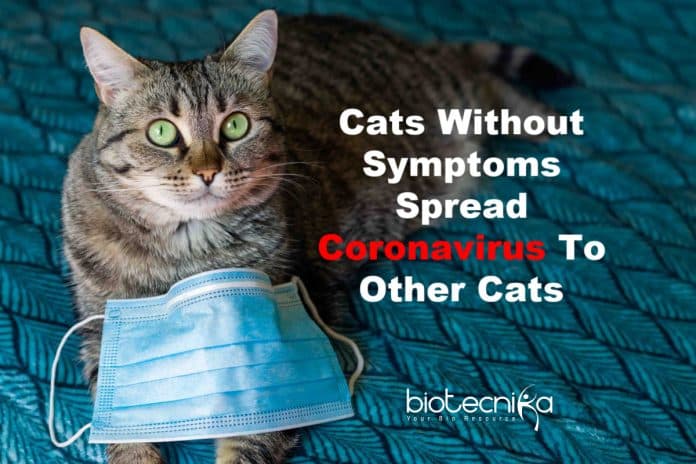Table of Contents
Cats without symptoms spread coronavirus to other cats in lab test
As per a lab experiment, cats without any symptoms can spread the coronavirus, to other cats.
Researchers who led the work said, it shows the requirement for even more research right into whether the virus can spread out from humans to felines to humans again.
The possibility has been minimized by the Health experts. “Just because an animal can be purposely infected in a laboratory “does not mean that it will quickly be infected with that same virus under all-natural conditions,” said the American Veterinary Medical Association.
Peter Halfmann, a virus expert said, any individual concerned about risk must use “common sense hygiene”.
He added, “Don’t kiss your pets and also maintain surfaces clean to reduce the possibilities of picking up any virus a pet may shed”.
The lab experiment was carried out by Peter Halfmann and his colleagues from the University of Wisconsin School of Veterinary Medicine. The outcomes were published in the New England Journal of Medicine on Wednesday. The study was funded by Federal grants.
The lab experiment:
The coronavirus sample was taken from a human patient by the researchers and then infected three cats with it. Each cat was then housed with another non-infected cat.
Coronavirus was detected in all 3 of the newly exposed cats within 5 days.
No symptoms were shown by all the 6 cats ever before.
Halfmann said, “There was no sneezing or coughing, they never ever had a fever or weight loss. If a pet owner took a look at them… they would not have observed anything”.
2 domestic cats in different parts of New York state were tested positive for the COVID-19 last month, after a moderate respiratory illness. They were thought to have infected by individuals in their houses or neighborhoods.
Few animals at the Bronx Zoo including tigers and lions were also tested positive for the infection.
The authors wrote those instances and the new laboratory experiment reveals “the public health need to recognize and investigate further about the potential chain of transmission between human-cat-human”.
The risk of pets spreading coronavirus to people “is thought about to be low based on the limited information available until now,” as per the guidelines from the U.S. Centers for Disease Control and Prevention.
“There is no evidence to recommend that pets, including family pets, infected by people are playing a role in the COVID-19 spread,” said the veterinary medicine group.
It emphasized that person-to-person transmission was driving this pandemic globally.
Nonetheless, the team noted that many diseases spread between pets and humans, so hygiene is always vital: Wash your hands before as well as after touching pets, and maintain your pet’s food and water bowls clean.
Halfmann, whose 2 cats sleep near him, stated that animal shelters are at greater risk, where one infected animal might pass the infection to several other animals.
Author: Sruthi S






























